


Prof. Ingo Denert is MD, specialist in cardiology, surgery and paediatrics.
It treats all congenital heart defects in both adult patients and newborns.
He is listed as one of the best doctors in FOCUS magazine.
Specialization:
Author of over 300 scientific papers
Membership in professional societies:
Head of the Department of Congenital Heart Defects in Adults, Beilinson hospital (Rabin Medical Center),
Israel
Dr. Hirsch is in the list of the best doctors of 2022 by Forbes.
Specialty:
Membership:
Education:
Assoc. Dr. Having received the specialty of a cardiac surgeon in 2002, Ahmet Yavuz Balci worked for 1 year at the Adana Seyhan Private Hospital and the Seyhan University Hospital of Bashkent. In 2003, he was appointed MD. After 16 years of professional experience at Siyami Ersek Thoracic and Cardiovascular Surgery Training and Research Hospital, he started working at Medistate Kavacık Hospital in early 2019.
Assoc. Dr. Ahmet Yavuz Balci is still continuing his professional studies at Medistate Kavacık Hospital.
2008-2011 Member of the founding team of surgeons of the project of the Ministry of Health on the creation and activation of domestic and international cardiac surgery centers.
Areas of interest:
Professor Ehud Raanani is one of the most experienced Israeli cardiac surgeons who has performed more than 3,000 heart valve replacement surgeries. Previously served as Chairman of the Israeli Association of Thoracic and Cardiac Surgery





Check the cost of treatment and get 20 000 € from international foundation
Get financial help up to 20 000 € for your child treatment
Medical consultant
Turkish oncologist will provide an individual chemotherapy program.
Israeli oncologist will provide an individual chemotherapy program.
Spanish oncologist will provide an individual chemotherapy program.
German oncologist will prepare an individual chemotherapy program.
Polish oncologist will prepare an individual chemotherapy program.
Italian oncologist will prepare an individual chemotherapy program.
Turkish radiologist will prepare a personalized radiation therapy program
Israeli radiologist will draw up an individual radiation therapy program.
German radiologist will draw up an individual radiation therapy program.
Spanish radiologist will draw up an individual radiation therapy program.
Polish radiologist will prepare an individual radiation therapy program.
Italian radiologist will draw up an individual radiation therapy program.
Turkish plastic surgeon will make an individual operation program.
German plastic surgeon will make an individual operation program.
Israeli plastic surgeon will make an individual operation program.
Italian plastic surgeon will make an individual operation program.
Polish plastic surgeon will make an individual operation program.
Spanish plastic surgeon will make an individual operation program.
Turkish orthopedic surgeon will make an individual operation program.
Israeli orthopedic surgeon will make an individual operation program.
German orthopedic surgeon will make an individual operation program.
Italian orthopedic surgeon will make an individual operation program.
Lithuanian orthopedic surgeon will make an individual operation program.
Polish orthopedic surgeon will make an individual operation program.
Ukrainian orthopedic surgeon will make an individual operation program.
Spanish orthopedic surgeon will make an individual operation program.
Turkish neurosurgeon will study the medical situation and give recommendations for treatment.
Israeli neurosurgeon will study the medical situation and give recommendations for treatment.
German neurosurgeon will study the medical situation and give recommendations for treatment.
Italian neurosurgeon will study the medical situation and give recommendations for treatment.
Lithuanian neurosurgeon will study the medical situation and give recommendations for treatment.
Spanish neurosurgeon will study the medical situation and give recommendations for treatment.
Ukrainian neurosurgeon will study the medical situation and give recommendations for treatment.
Turksih doctor will answer your questions
Israeli doctor will answer your questions
German doctor will answer your questions
Italian doctor will answer your questions
Polish doctor will answer your questions
Ukrainian doctor will answer your questions
Spanish doctor will answer your questions
Israeli orthopedic surgeon prepare an individual surgical plan and recomendations
Turkish orthopedic surgeon prepare an individual surgical plan and recomendations
German orthopedic surgeon prepare an individual surgical plan and recomendations
Italian orthopedic surgeon prepare an individual surgical plan and recomendations
Lithuanian orthopedic surgeon prepare an individual surgical plan and recomendations
Polish orthopedic surgeon prepare an individual surgical plan and recomendations
Spanish orthopedic surgeon prepare an individual surgical plan and recomendations
Lithuanian doctor will answer your questions
After examining your situation, doctor will make an individual price offer.
Doctor-consultant will answer all your questions about the cost of treatment, the choice of a doctor and fully organize treatment abroad.

we will contact you within 15 minutes
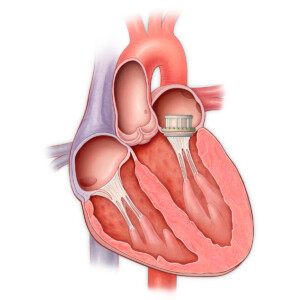
Heart valve replacement is a cardiac surgery procedure that avoids death due to heart failure and heart defects. According to the World Health Organization, heart disease is the No. 1 cause of death from disease in the world.
Aortic stenosis is the most common cardiac pathology, for the treatment of which patients come to foreign clinics.
Surgeries to replace heart valves are performed at a high level in many countries where medicine is developed. Cardiac surgeons from Germany (University Hospital in Cologne), Turkey (Anadolu Clinic), South Korea (Samsung Medical Center), and Lithuania (Kardiolita Clinic) have achieved particular success. At the same time, many leading clinics have affordable prices for mitral valve replacement surgery.
Patients from Eastern Europe and Central Asia choose foreign clinics because they use advanced surgical methods and the latest generation of transplant models.
Heart valve replacement abroad is the optimal solution. This can guarantee the most favorable prognosis for patients who suffer from cardiac pathologies.
The main advantage of foreign clinics: the survival rate of patients after cardiac surgery reaches 98.8%. Foreign patients prefer to undergo heart valve replacement abroad for various reasons, including:
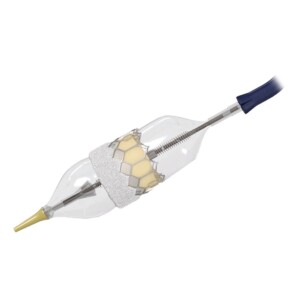 Availability of modern medical equipment that meets international standards.
Availability of modern medical equipment that meets international standards.According to the European Association of Cardiothoracic Surgeons, patients with an artificial valve who were operated on abroad can live for 30-40 years without replacement with a new one.
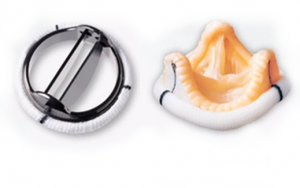
The heart valve is the part of the heart that allows proper blood flow. There are four types of valves in the heart: pulmonary, aortic, tricuspid and mitral. Treatment of mitral valve pathologies allows for both replacement and reconstruction of the organ in specific cases; in case of damage to the aortic valve, prosthetics are indicated.
Injuries to the mitral and aortic valves account for the vast majority of surgical valve replacement procedures.
Heart valve replacement is indicated in the presence of the following cardiac pathologies:
According to WHO, after heart valve replacement surgery, the 3-year survival rate of patients is more than 87%. Only 21% of people reach the 3-year mark without surgery.
Before performing the operation, the doctor takes into account the patient’s general condition, the presence of chronic diseases, allergic reactions to medications and other indicators.
Surgery to replace heart valves is contraindicated for certain diseases and conditions, including:
The decision to perform heart valve replacement surgery is made by a multidisciplinary commission after a thorough examination of the patient, taking into account risk factors.
To make an accurate diagnosis and draw up a treatment regimen, cardiologists abroad prescribe a set of examinations to patients. Basic diagnostics that allow you to identify cardiac pathologies associated with the functioning of the aortic valve include the following tests:
 Electrocardiography (ECG) – monitoring the heart rate, the presence of left ventricular hypertrophy, myocardial damage.
Electrocardiography (ECG) – monitoring the heart rate, the presence of left ventricular hypertrophy, myocardial damage.Another great advantage of foreign hospitals is the opportunity for a person to undergo comprehensive monitoring of the functioning of the cardiovascular system. Cardiological check-up is a modern and most reliable study that allows you to identify cardiac pathologies at an early and even asymptomatic stage of the disease.

There are two types of operations to replace heart valves:
It is also possible to replace a heart valve without removing it. Among foreign patients, this surgical intervention is most in demand.
Heart valve replacement is the most successful treatment for aortic valve disease. There are two types of valve grafts:
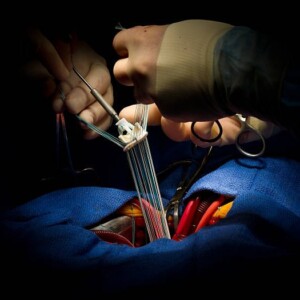
Traditional heart valve replacement involves open heart surgery under general anesthesia.
How long heart valve replacement surgery takes depends on the specific heart pathology. As a rule, the duration of the procedure is 3-6 hours.
During the operation, the surgeon makes an incision in the sternum and connects the patient to the ICU. The heart is temporarily stopped and cooled. This is necessary to remove the damaged valve and install an artificial prosthesis in its place.
After implanting the valve, the doctor starts the heart and checks the blood flow. Only after all manipulations the patient is disconnected from the artificial blood pressure pump and stitches are applied.
Many foreign patients travel abroad to undergo valve replacement as an alternative to open heart surgery. This mainly applies to older people, as well as those who have contraindications for the traditional procedure.
Possible alternative procedures for aortic valve replacement without major open heart surgery include:
Surgeons perform all alternative interventions primarily in cases where open-heart surgery to replace a valve has increased risks for the patient.
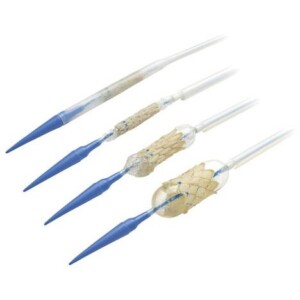
Transcatheter aortic valve implantation (TAVI/TAVR) is an innovative treatment for aortic stenosis. This is a worthy alternative to open heart surgery. The intervention is indicated for patients who are considered to be at high risk of complications after open heart surgery.
Advantages of the TAVI method:
Heart valve replacement using the TAVI method is minimally invasive. The surgeon implants the artificial valve through a catheter that is inserted into the femoral artery or a small incision in the chest.
Transcatheter valves are made from pig or cow heart tissue. The new prosthesis is placed on top of the existing valve and fixed inside the aorta. It immediately begins to function and restores blood flow.
Heart valve replacement is carried out under the control of modern imaging systems. Unlike traditional open heart surgery, heart valve replacement with the TAVI method takes 40-120 minutes and is performed under local anesthesia.
The patient stays in the intensive care unit for only a few hours. The rehabilitation period usually lasts 3 days. A special feature of the procedure is the use of exclusively biological valves. The patient must take antithrombotic drugs for 3 months.
Heart valve replacement using the TAVI method provides for complete recovery of the patient in 2-3 weeks, in contrast to open heart surgery, in which rehabilitation lasts for several months.
Heart valve replacement is a serious cardiac surgery procedure, during which doctors take into account all possible risks and complications. Interventions are carried out with particular caution in older people and anyone in poor health.
Possible problems include:
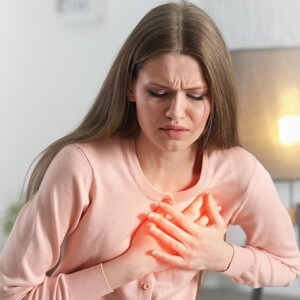 Infection. Infections of the lungs, bladder, heart valves (endocarditis) and wound infections are most likely to occur. To reduce the risks, doctors may prescribe antibiotics.
Infection. Infections of the lungs, bladder, heart valves (endocarditis) and wound infections are most likely to occur. To reduce the risks, doctors may prescribe antibiotics.Also, 5% of patients experience kidney problems in the first days after surgery. In some cases, temporary dialysis may be required.

The price of mitral valve replacement surgery abroad depends on many factors, including:
The best prices for heart valve replacement surgery in Turkish clinics start from $19,000. The average cost of the procedure in German hospitals starts from €27,000, heart surgery in Israel averages $26,000, Spain starts from €23,000, Austria starts from €25,000.
The Experts Medical website presents prices for heart surgeries, including valve replacement, in specific foreign clinics. For more detailed information on the cost of the procedure, please contact Experts Medical coordinating doctors.
The most successful results in primary replacement and reimplantation of heart valves by cardiac surgeons in Israel, Germany, Turkey, Spain, and Austria.
Thanks to reviews from its patients, Experts Medical has compiled the TOP 5 best hospitals that it can recommend for heart valve replacement:
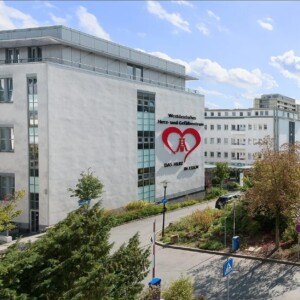 University Hospital Essen in Germany. It is considered one of the most advanced hospitals in the country and is included in the TOP 100 best hospitals in the world according to Newsweek. Essen conducts research work in many medical fields, including cardiac surgery. This is the medical base of the University of Duisburg-Essen. In the clinic, valve replacement is performed by experienced doctors using minimally invasive technologies.
University Hospital Essen in Germany. It is considered one of the most advanced hospitals in the country and is included in the TOP 100 best hospitals in the world according to Newsweek. Essen conducts research work in many medical fields, including cardiac surgery. This is the medical base of the University of Duisburg-Essen. In the clinic, valve replacement is performed by experienced doctors using minimally invasive technologies.When choosing a medical center, patients are advised to pay attention to the following information:
On the Experts Medical website you can find prices for diagnostic procedures and heart surgery for valve replacement in clinics abroad and read real reviews. For more detailed information, you need to call the company’s doctors.

In order to undergo surgery in the best foreign hospitals with experienced surgeons as quickly as possible, you need to leave a request on the Experts Medical website.
Coordinating doctors will help the patient:
If necessary, Experts Medical will organize a preliminary online consultation between the patient and the attending physician.
With the support of Experts Medical, heart valve replacement will be as comfortable, organized and cost-free for the patient as possible.